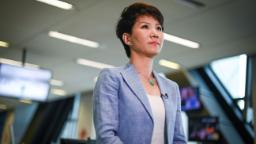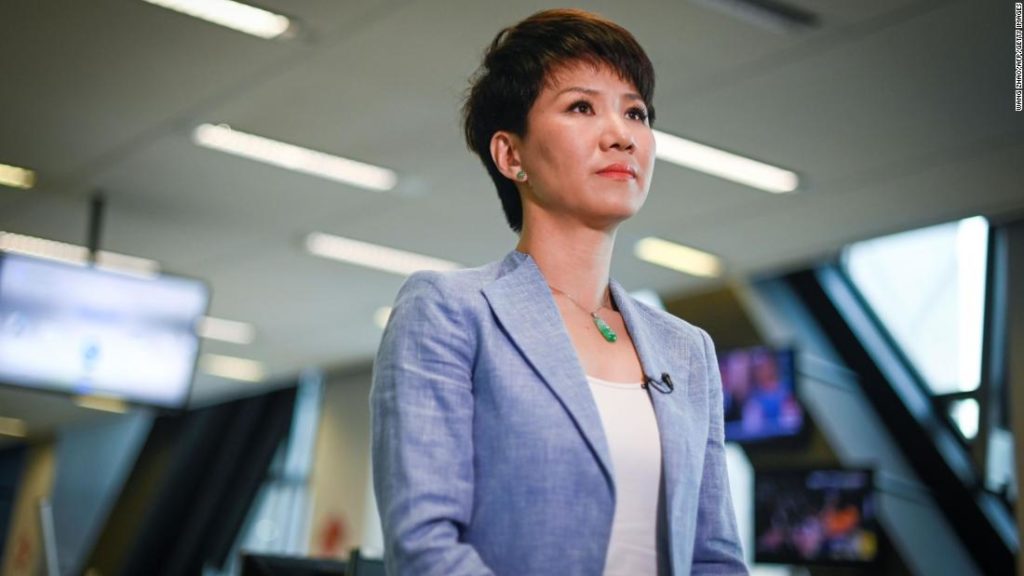
Ofcom said that Star China Media Limited did not have “editorial responsibility” for the channel’s output, and therefore “does not meet the legal requirement of having control over the licensed service.” Star was acting as the distributor, rather than the provider of the news channel, it added.
The regulators also rejected a proposal by CGTN to transfer the license to a new entity after finding that it would ultimately still be controlled by the Chinese Communist Party, and therefore disqualified under UK law.
“We’ve provided CGTN with numerous opportunities to come into compliance, but it has not done so. We now consider it appropriate to withdraw the license for CGTN to broadcast in the UK,” an Ofcom spokesperson said.
The channel will be removed from UK airwaves with immediate effect. CGTN has the right to request a judicial review, according to an Ofcom spokesperson, and it could apply for another license in the future.
In the United Kingdom, all TV and radio broadcasters need a license from Ofcom to operate, and are subject to rules on impartiality, accuracy and protection of privacy.
A long history
The regulator identified violations across five separate broadcasts, ruling last year that the channel overemphasized the positions of government authorities in Hong Kong and China without exploring the views or motivations of protesters. Ofcom said on Thursday that it expects to reach a decision “shortly” on potential sanctions stemming from the violations.
“We have three other fairness and privacy investigations about content on the CGTN service which also remain ongoing, pending further consideration,” the regulator added.
Ofcom also found that CCTV News, which was renamed as CGTN in 2016, violated its rules in broadcasts covering the arrest of corporate investigator Peter Humphrey in China. The broadcasts in 2013 and 2014 included footage of Humphrey “appearing to confess to a criminal offense” that Ofcom said “had the potential materially and adversely to affect viewers’ perception of him” without giving Humphrey enough time to respond.
Headquartered in Beijing, CGTN has three production centers in Nairobi, Kenya, Washington D.C. and London.
China’s response
China’s government slammed the decision on Friday, saying the decision had been made “for political reasons.”
“On the one hand, the British side advocates freedom of the press. On the other hand, it disregards the facts and revoked the license of CGTN in the UK,” Ministry of Foreign Affairs spokesperson Wang Wenbin said. “This is a blatant double standard and political oppression.”
The Ofcom decisions could ramp on tensions with Beijing, which said Thursday that it would be lodging a complaint with the head of the BBC’s Beijing bureau regarding what China’s foreign ministry called “fake news” broadcast by BBC about the pandemic on Jan. 29.
“BBC’s recent news video on the coronavirus pandemic linked the disease to politics, rehashed the theories about [China] concealing the pandemic, [China] being the source of the pandemic, and [China] being responsible for the pandemic,” the ministry said in a statement.
It urged the public broadcaster to “make a public apology” and to “stop deliberately smearing and attacking China.”
The BBC is defending its reporting.
“We stand by our accurate and fair reporting of events in China and totally reject those unfounded accusations of fake news or ideological bias,” the network said in a statement.
You may also like
-
Afghanistan: Civilian casualties hit record high amid US withdrawal, UN says
-
How Taiwan is trying to defend against a cyber ‘World War III’
-
Pandemic travel news this week: Quarantine escapes and airplane disguises
-
Why would anyone trust Brexit Britain again?
-
Black fungus: A second crisis is killing survivors of India’s worst Covid wave

